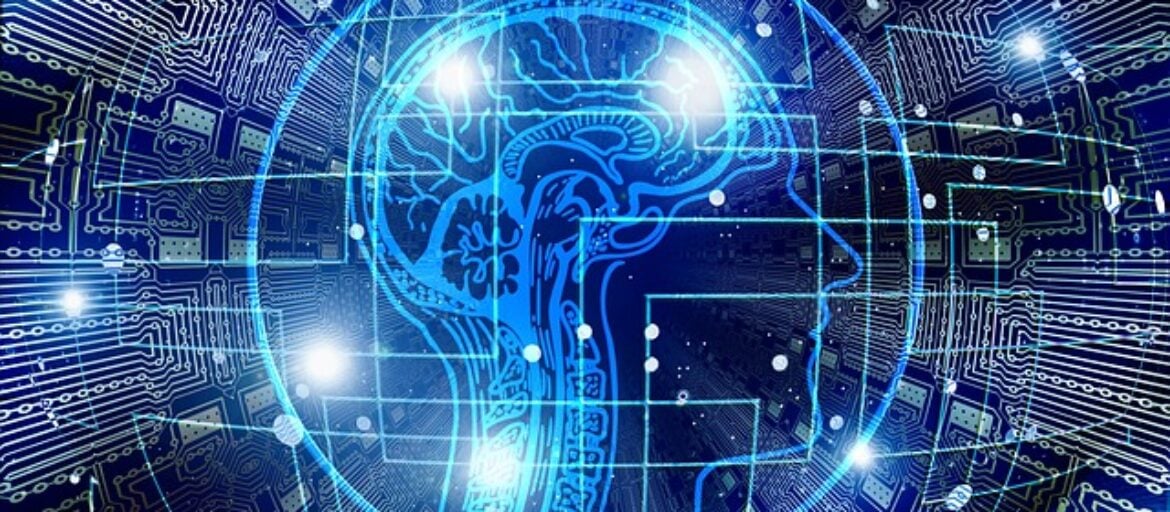Grant recipients hailing from academia, industry, and clinical practice will receive funding to develop new aging-related technologies and innovations.
The Johns Hopkins Artificial Intelligence and Technology Collaboratory for Aging Research, or JH AITC, has announced the recipients of its fifth round of grant funding. Totaling just over $1.5 million, this round supports the collaboratory’s mission by funding the development of artificial intelligence technologies to improve the health and quality of life of millions of older Americans and their caregivers.
Nine projects from academia, industry, and clinical practice were selected out of 109 applications through a competitive national grant review process. Each awardee will receive up to $200,000 in direct costs over a one-year period, as well as access to resources and mentorship from Hopkins experts in fields such as computer science, nursing, medicine, and technology commercialization.
Launched in 2021 with a $20 million grant from the National Institute on Aging, the JH AITC is a national hub for innovation in healthy aging and cross-disciplinary collaboration within the Johns Hopkins community and beyond.
This round, the JH AITC has invested in research that leverages AI to support healthy aging and mitigate the effects of dementia.
Anis Davoudi, an assistant scientist in the Department of Epidemiology at the Bloomberg School of Public Health and a member of the Johns Hopkins Center on Aging and Health, aims to develop an AI-driven screening tool that uses eye tracking and speech analysis to identify digital biomarkers in older adults that indicate mild cognitive impairment.“The findings of this pilot study will be used to create a non-invasive and accessible assessment method that can be used in clinical and community settings to facilitate early intervention and support healthy cognitive aging,” says Davoudi.
Another Hopkins-led pilot will provide clinical validation of an AI-driven gait-monitoring device equipped with actionable gait insights, designed to help prevent older patients and care providers more efficiently track rehabilitation progress and enhance mobility health.
“Our Re-Kinesis technology, enabled by AI analytics, aims to discover gait conditions that lead to gait disorders and potential falls in the aging population,” says Nitish V. Thakor, a professor of biomedical engineering, electrical and computer engineering, and neurology, who is the principal investigator of the project. “We aim to apply this AI-enabled technology to develop solutions for gait and fall conditions.”
“Using a high-density pressure sensor array and AI-driven sampling, we can obtain a very high-resolution ‘pressure video’ of the distribution under the feet, which we feed into another AI model that predicts body movement,” explains project team member Arik Slepyan, a PhD student of electrical and computer engineering. “We have miniaturized our electronics into a battery-powered wearable so that people can use our gait monitor at home or on the go.”
“Our AI model can predict the angles of the hips, knees, and ankles from the plantar pressure distribution by identifying the most probable joint positions,” adds Samuel Bello, a PhD student of biomedical engineering working on the project. “This allows us to accurately measure a person’s gait without the need for cumbersome cameras or inertial measurement units.”
“The question we wanted to answer was, ‘How do we make rehabilitation accessible to more people?’” adds Junjun Chen, Engr ’22 (BS/MSE), the co-founder of the Re-Kinesis project concept. “Our solution was to leverage our collective sensing and AI expertise to create a wearable gait analysis lab. Older adults can wear it unobtrusively at home to get lab-grade gait monitoring, while physicians and therapists can remotely access the data to provide better rehabilitation and, most importantly, promote healthy aging.”
Other pilots funded this round include:
- CogniScore-Early Detection of Alzheimer’s Using Non-Invasive Wearable Sensing and AI (Sean Montgomery, Connected Future Labs): This project will develop CogniScore, a cognitive wellness tracker that leverages daily-life wearable device data and advanced AI to enable early detection of Alzheimer’s disease and related dementias (AD/ADRD).
- Apriqot: Leveraging EHR and AI for Granular ADRD Prevalence & Risk (Ken Shapiro, Apriqot Inc.): This pilot aims to provide accurate regional estimates of AD/ADRD prevalence and risk to aid public health officials in targeting dementia screening and care interventions more effectively in high-need areas.
- CAPTASK: Vision-Guided, Context-Aware Task Assistance for Daily Activities (Anson Kairys, University of Michigan): This project introduces CAPTASK, an innovative AI-driven system designed to assist individuals with AD/ADRD in completing essential daily activities such as cooking, taking medications, and dressing. CAPTASK combines advanced AI and computer vision to deliver real-time, step-by-step guidance personalized to each user.
- Smart Robot Guide for Daily Dental Care in People with Memory Loss-AI-based humanoid robot to assist in performing activities of daily living in PLWD (Fengpei Yuan, Worcester Polytechnic Institute): This proposed system integrates a humanoid social robot, Pepper, and a wearable sensor, ActiGraph, to provide step-by-step guidance, adaptive feedback, and emotional support during activities like teeth brushing. Using advanced AI and multimodal perception, feedback, and interaction, the robot delivers verbal instructions, visual aids, and gestures to engage and assist users effectively while monitoring their progress in real time.
- Integrating AI into a smart sleep mask to improve slow wave sleep in AD patients (Brian Krohn, Synaptic Health): Synaptic Health is developing a comfortable and low-profile peripheral neuromodulatory medical device that monitors a patient’s sleep stages and provides non-invasive AI-driven neuromodulation to promote sleep onset, sleep duration, and the ideal sleep stage architecture in patients 65+ with insomnia who are at high-risk of accelerated AD. The goal of the device is to reduce the accelerating impacts of disturbed sleep on AD patients, thereby extending their quality of life and reducing the burden on caregivers.
- AI-Based Mitochondrial Aging Clock and Multiomics Frailty Biomarkers (Hayan Lee, Fox Chase Cancer Center): This project aims to develop a new way of predicting the aging process in cells, specifically looking at mitochondria. The project’s goal is to build an AI-based model to predict how fast a person’s mitochondria are aging with the hope of identifying early biomarkers that can help us understand and potentially slow the aging process.
- Morphologic-Epigenomic Tool for Senotherapy Mapping (Tim McConnell, AtlasXomics, Inc.): This project applies novel morphologic-epigenomic profiling to study senescent brain cells; its integrative approach promises to accelerate the identification of pathways critical for senescence regulation and the discovery of novel therapeutics for aging-related diseases including AD/ADRD.
Additionally, four more projects received awards from the AITC’s fourth round of funding:
- Machine learning to detect skin frailty (Anne Chang, Stanford University): The goal of this pilot is to improve access to dermatologic care for older adults who have increased risk of adverse skin health outcomes by developing a machine learning algorithm to detect skin frailty. This tool could encourage patients with skin frailty to seek dermatologists’ care for disease prevention, diagnosis, and/or treatment.
- Using Retitrack+AI to explore novel eye biomarkers in the cognitively impaired (Jonathan Artz, Renown Institute for Neurosciences): This pilot study will evaluate the prevalence and characteristics of abnormalities of fixational eye movements, saccades, and pupillary dynamics measured simultaneously using the Retitrack device in subjects with different types of mild cognitive impairment and early stages of dementia.
- A Personalized Evolvable AI Tool for Real-Time Testing and Intervening AD/ADRD (Chung-Yi Chiu, University of Illinois Urbana-Champaign): This pilot will use innovative machine learning to develop an AI computation and an intelligent app, SavvySeeSaw, that is capable of detecting AD/ADRD.
- Wearable in-shoe Sensors for Gait Monitoring in NPH (Jefferson Chen, University of California, Irvine): The goal of this study is to use wearable in-shoe pressure sensors to determine the features of gait in patients with normal pressure hydrocephalus as compared to normal control patients.





